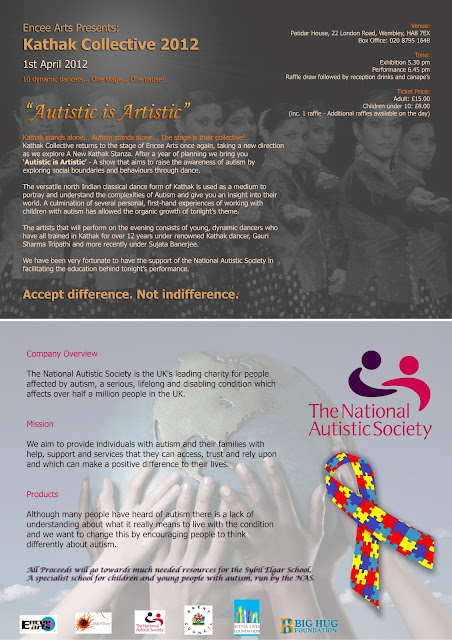The National Autistic Society:
 'We aim to provide
individuals with autism and their families with help, support and services that
they can access, trust and rely upon which can make a positive difference to
their lives. We are a
charity, and we rely on the support of people like you to help us improve the
lives of people living with autism’’
'We aim to provide
individuals with autism and their families with help, support and services that
they can access, trust and rely upon which can make a positive difference to
their lives. We are a
charity, and we rely on the support of people like you to help us improve the
lives of people living with autism’’
Find more
information on autism: www.autism.org.uk
The Sybil Elgar School:
A Specialist School for children and young people with Autism - run by the National Autistic Society.
The Sybil Elgar School was opened in 1965.
Sybil was a Montessori teacher persuaded by the parents who'd agitated and
organized to create the school to turn their ideas into practice. At first it was for just nine autistic students in a converted
house in Ealing. Now the school consists of three sites in West London
which offer secondary school provision for ages 11 to 16, further education
provision for ages 16 to 19, and weekly boarding and short break provision for
ages 11 to 19.
Sybil Elgar School is a caring and
progressive school, which gives students every opportunity to learn and
achieve. We hold our students in high esteem and know that our strengths come
from the real partnership we have with our students, families and professionals.
We offer secondary, further education and residential care for young people
with autism. We accept students from across the UK.
Why Support us?
There are over
half a million people in the UK with autism - that's around 1 in 100. If you
include their families, autism touches the lives of over two million people
every day.
We want a
world where all people living with autism get to lead the life they
choose.
This means a world
where everyone living with autism:
1. gets the support,
education and training they need
2. lives with dignity and as
independently as possible
3. feels part of their
community and wider society
4. is understood by all
professionals who support them
5. is respected for
who they are by a knowledgeable public.
Donate now at www.justgiving.com/autistic-is-artistic
‘’I think Sybil
Elgar School is cool because it helps people that have autism. We can
learn a lot. We have fun days out, trips with our friends - the Natural History
Museum, the Science Museum, The Horniman. We make our own food in Food
Technology - cakes and cookies. We had Polish week and we went to the Polish
Centre. We had Polish doughnuts! I like all the teachers. They teach me a lot.
We learn a lot about hygiene, taking care of things, learning about other
people. We have clubs now. I have Cycle Club on Friday and we have Maths Club,
Yoga Club’’
Aniajah- Student at The Sybil Elgar School



